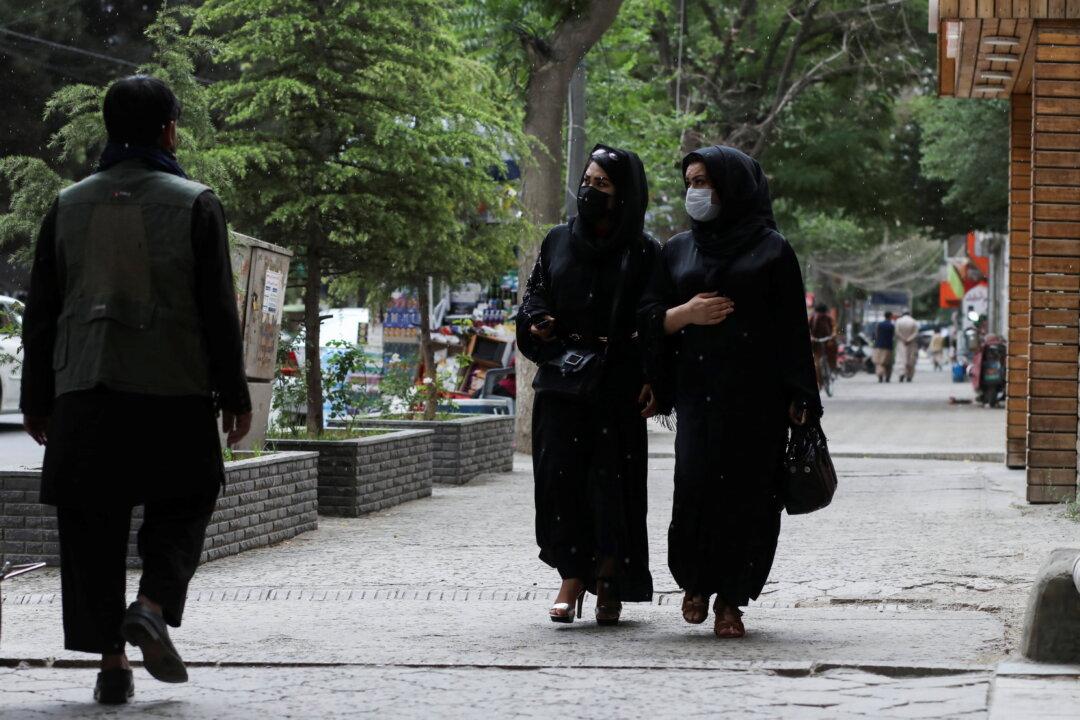United Nations human rights chief Volker Türk has urged the Taliban to repeal several laws passed last week, saying that they reduce women in Afghanistan to “faceless, voiceless shadows.”
The laws, described by the Taliban as discouraging vice and promoting virtue, ban women’s voices and faces in public.





